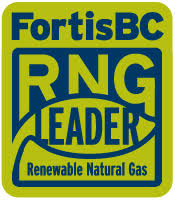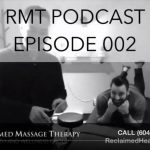RMT Podcast 003 – New ICBC Ruling April 1, 2019
RMT Podcast 003 Show Notes
Sherman Hu: 00:02 Hey guys, this is Sherman from ShermanLive.com. We have Michelle Brown from Reclaimed Health Group, Health and Wellness. We have the queen of Registered Massage Therapy and RMTs in Chilliwack on the podcast show with us. So Michelle, let’s talk about some exciting news first. You’re excited about what’s coming up in three days?
Michelle Brown: 00:24 Yes. My trip to Mexico, I’m very excited for a vacation.
Sherman Hu: 00:31 A long awaited relaxation and I know you guys go hard. Tell me more about what’s going on with ICBC. There’s a new ruling.
Michelle Brown: 00:39 Yeah, definitely. So I just wanted to kind of inform our patients about the changes and ICBC treatments because prior to April 1st, 2019, our patients found it sometimes difficult to have access to treatment when it came to ICBC treatment. The problem was that a lot of RMTS wouldn’t direct bill to ICBC. So our patients were paying out of pocket for their treatments, and it makes accessibility to their care a little bit more difficult. With this new ruling, ICBC now is making it easier for therapists and our patients to access that care. Prior to April 1st, ICBC was only paying about $23 a treatment. Regardless if it was a 30 minute treatment, a 45 minute treatment, 60 minute treatment, they didn’t base it on the need of the patient. Instead they were just basing it on a flat rate for all treatments.
Michelle Brown: 01:40 And for most RMTs it’s difficult to then bill out for $23 and then try and chase ICBC for their money; and also for our patients to be having to pay out of pocket instead of us being able to direct bill. The other big change and the big difference between prior to April 1st of this year til after April 1st is that ICBC was not the first payer of these claims. So, often what our patients would have to do is they would have to go to their third party insurance, so Pacific Blue Cross, Medavie, Green Shield, whoever it is, and they’d have to max their benefits out before ICBC would then pay for those benefits to get the massage therapy treatments that they needed. There was always this disconnect between the third party insurers and ICBC. And then our patients were kind of caught in the middle of this struggle between them.
Michelle Brown: 02:44 So now what’s happening is ICBC is going to be the first payer so we can direct bill to ICBC. And then if there is a remaining portion after and above what ICBC is paying, then we can direct bill that to their third party providers. That makes accessibility care a lot easier for our patients. And it means that they’re getting treatment sooner, more frequently if they need it. A lot of people, even though they need a treatment, say twice a week after a car accident, they weren’t coming in that often because it was hard on their paycheck, right? It was hard to pay for that many treatments, especially if they’re getting multiple treatments. So if they’re getting physiotherapy, massage therapy, chiropractic care, all at the same time, all in the same week, and they’re having to pay out of pocket – nobody can afford that, right?
Michelle Brown: 03:34 The changes are that ICBC will now pay out for an initial consultation with a massage therapist. Your initial consultation can be up to 60 minutes long. It’s 100% covered and 100% we can direct bill to ICBC. So nothing out of your pocket, which is fantastic. After that, ICBC will provide patients with 12, well, 11 treatments at 45 minutes a treatment, which is enough time for assessment and hands on care and the treatment. And typically if you’re experiencing, you know, one or two areas of the body, that’s enough time to treat those areas.
Michelle Brown: 04:20 Another great thing about this change is that it’s regardless of fault of accident. So if you’re at fault for the accident, you can still receive treatments – up to 12 of them – after the accident. So you don’t have to wait till fault is determined. So you don’t have to wait until that’s determined before you can actually receive treatments if you’re injured, which as we all know with research, the sooner people, especially with whiplash conditions, the sooner you can be treated after the accident, the better your outcome is. So we recommend usually within 72 hours of your car accident to come in and get assessed and start your treatments and develop a treatment plan for you.
Speaker 1: 05:22 Are there situations where professional recommendations are in conflict with what a physio might say, versus, what an RMT says?
Michelle Brown: 05:31 Sometimes like we definitely have to work with the physio is because we don’t want our patients being overtreated so it’s really important that we know what the physio is doing, that we, that they know what the massage therapist is doing so that we’re not doing overlapping treatment, say in, in the same week or on the same day. So oftentimes we’ll communicate with our patient’s permission with their other care providers so that we know, okay. Like with Kerri (Kerri-Ann Swartz) from Chilliwack Sports Medicine, often we’ll figure out, okay, Kerri’s going to do some needling on the area. It’s a good idea to have the needling in prior to coming in for a massage. You want to have needling first and then either that day or the day after, that’s when you want to come in for the massage so we’ll coordinate our treatments so that it’s more effective for our patients and again, so they’re not being over-treated and that is also dependent on the stage of their injury as well.
Michelle Brown: 06:30 So if somebody comes in and they’re really acute, the accident’s just happened, it’s been within that 72 hours, they’re going to be treated a lot different than when they’re in a sub-acute or chronic state of their injury. That all has to be determined through an assessment and then, yes, collaborating with their other primary care providers is really important to make sure that the treatments are effective and not too much for them. And some of the other big changes as well is that our patients don’t have to get approval from their ICBC provider or their doctor prior to getting treatments, which is huge. Our doctors are bombarded with soft tissue complaints. It’s one of the primary reasons why people go on work safe claims or come in after ICBC, with their ICBC claims. And our doctors are so busy.
Michelle Brown: 07:28 How often do we try and get into a walk in clinic or we try to get into our family doctor and it takes weeks to get into. Now our patients are able to get that care quicker and when they need it more and they don’t have to wait to get into their doctor, they don’t have to wait to see their ICBC adjuster. Those treatments can start immediately. So within those first 12 weeks after their accident, they can have those 12 appointments without any approval. And then if they require more treatment. so if it’s determined that, maybe this is going to be a longer term care or they need some extra help, then we can go and get a doctor’s referral for extended treatments. We can talk to their ICBC adjuster and they can get more treatments as needed type thing.
Sherman Hu: 08:17 Michelle, is the “12” shared between all care providers?
Michelle Brown: 08:17 No.
Sherman Hu: 08:21 It’s 12 per discipline.
Michelle Brown: 08:22 It’s not even per discipline. It’s different for each discipline. So for massage therapy, it’s 12 visits within 12 weeks without a referral, without approval. I think physio therapist, I’m not a hundred percent sure on the number, but I think it’s 25 treatments.
Sherman Hu: 08:40 OK, so let’s say a dozen with RMT. Let’s say 20-25 with physio. OK, that’s great.
Michelle Brown: 08:40 Yeah, yeah, exactly. And that’s without any approval. It’s really hard to get into a massage therapist too. Sometimes you have to wait a little while. So it’s good that our patients know that in a car accident, you have soft tissue injuries, you get out of the hospital, you’ve been assessed everything with your bones and x rays and everything like that is okay. But you’re still having headaches. You’re still having whiplash, pain in your shoulders, your hips, a lot of low back and hip issues from car accidents. It’s good to know that you can, you don’t have to wait. You can call your massage therapist, you can book in those appointments, get the care that you need right away.
Sherman Hu: 09:28 That’s incredible.
Michelle Brown: 09:29 Yeah.
Sherman Hu: 09:29 What do you foresee, outside of what you’ve covered, would be some of the frequently asked questions by clients or patients and new patients?
Michelle Brown: 09:39 Are we just talking in general or in regards to ICBC? Because in general I’ve got lots of them… haha…
Sherman Hu: 09:48 Specifically this new ruling – they get into an accident – anything that you maybe haven’t covered yet?
Michelle Brown: 09:54 Yeah, definitely. One of the important things to note is just like with any accident, you’re probably gonna call ICBC right away to report the accident. And what’s going to happen is they’re going to give you a claim number and that claim number is what we need to be able to direct bill for our patients. So it’s really important that they have their claim number and that they have all the information about their accident. Because we do have to ask very specific questions when we’re dealing with an ICBC case. That’s part of our initial assessment we would have with our patients. It’s a very thorough assessment. There’s lots of things we have to cover. So making sure you have all your medications that you’re on. Any recommendations from the hospital if you were seen in the hospital. Any kind of x rays if you did have x-ray’s those are great to have. You definitely have to have the claim number as well so we can direct bill and everything for them.
Sherman Hu: 10:50 Okay. So as soon as April 1st kicks in or it comes around, that ruling is in effect.
Michelle Brown: 10:58 Yeah. And we’re going to have new treatments on our website that will be specific for ICBC claims. So right now somebody who has an ICBC claim, they would just note that in their intake form. But now we’re going to have a specific assessment treatment for our patients that they will then book themselves if they would like to online or when they call in, make sure they tell us that they have an open ICBC claim and that we can then give them the appropriate treatment and book them in. And then we’ll have a subsequent treatment plan set up for them. So on our website there’ll be a secondary followup treatment for them that will be 45 minutes long.
Sherman Hu: 11:40 Okay.
Michelle Brown: 11:41 Yeah. And we do recommend pre-booking appointments. Everybody gets very busy. So usually what I’ll say is, is pre-book at least your first two or three appointments, at least three days in between those appointments. But pre-book a couple appointments so that we can get you into a good rhythm with them. With our initial assessment, what I like to do is after the initial assessment, I’ll wait until their second treatment before I develop a treatment and management plan for their care.
Michelle Brown: 12:12 So I’d like to know after their treatment – How they felt after their treatment? How long the effect of the massage lasted? Were you really sore? Was it maybe too aggressive with their treatment? I won’t know that till the second treatment that I see them. And then I can say, okay, I think you need to come in twice a week for the next three to four weeks and then I want to try spreading those treatments out. Or I don’t need to see you, I only need to see you once a week for the next couple of weeks, right? It’s hard to determine that until we’ve done the assessment. We’ve done an initial treatment and then we do a followup treatment. So I always recommend at least booking those two appointments right when they book their first appointment.
Sherman Hu: 12:49 Because I know you guys book up really quickly. For folks who are seeing or getting to know you guys for the first time, what’s an easy way for them to pre-book with you?
Michelle Brown: 13:02 Definitely our website is probably the fastest, easiest and most convenient way to book. You can do it at midnight if you’d like to or you can do it when we’re closed. You don’t have to talk to somebody on the phone or wait for us to answer our emails. So that’s why we have it all set up on our website to make it really easy to see – “Okay, I have an ICBC claim. This is the massage we should be booking.”
Sherman Hu: 13:27 Okay. Okay. That’s wonderful. Any last points that you made you want to cover on this topic, Michelle?
Michelle Brown: 13:39 I think that’s it. Yeah.
Sherman Hu: 13:41 You’ve been quite comprehensive with timing, specifics and details about it.
Michelle Brown: 13:47 Yeah. I think mainly just being aware that you want to be talking to your therapist about the ICBC claim, that you do have an ICBC claim. Being open about that when they call in, making sure that we know that’s what we’ll be dealing with so that we can set up everything for them prior to them coming in is really important.
Sherman Hu: 14:08 That’s awesome. That’s great. Great Info. I think it’s going to be a wonderful win win for not only to practitioners but also the people seeking help.
Michelle Brown: 14:19 Absolutely.
Sherman Hu: 14:20 And I believe it definitely would be a win for ICBC too knowing patients or clients are feeling better. So Michelle, thank you so much. That’s great. And we’ll definitely have this podcast on your website and the details for pre-bookings also on the website, ReclaimedHealthGroup.com. Once again, we have Michelle Brown, Clinic Manager and RMT at Reclaimed Health Group and the website is ReclaimedHealthGroup.com and I know after this you’ll be enjoying a good time in Mexico…
Michelle Brown: 14:54 Can’t wait!
Sherman Hu: 14:54 And we’ll catch you up on the next podcast episode.
Michelle Brown: 14:56 Thanks Sherman.
Sherman Hu: 14:57 All right, see ya.




